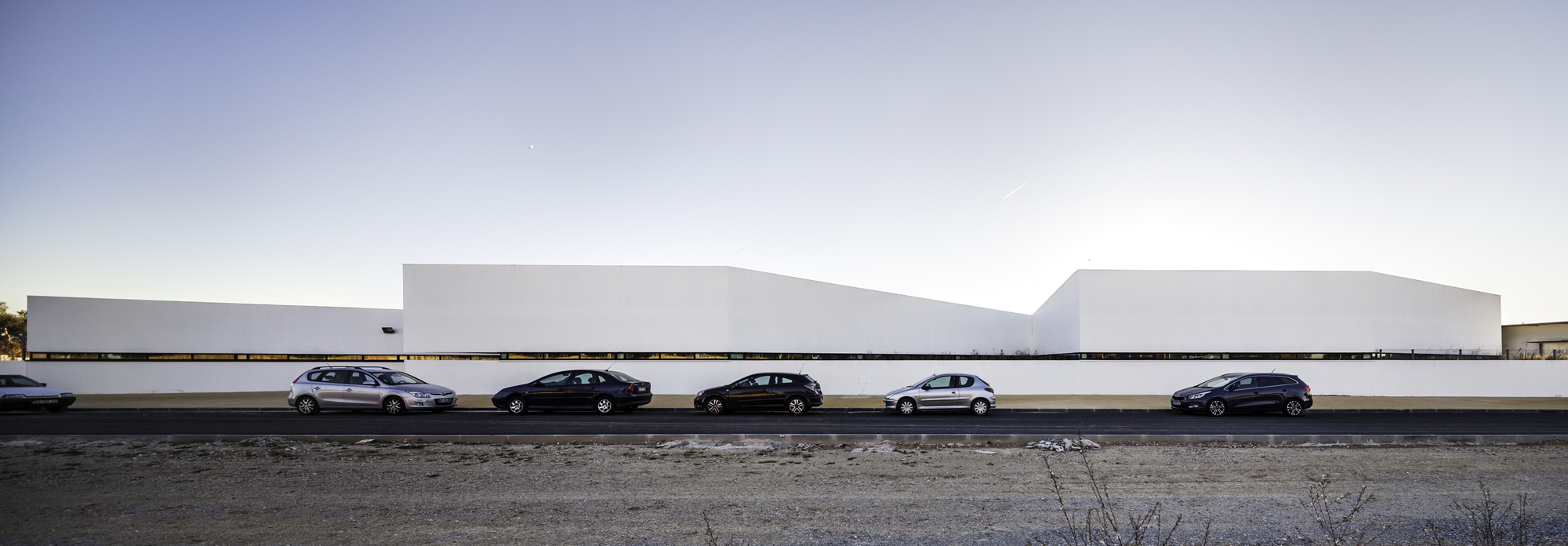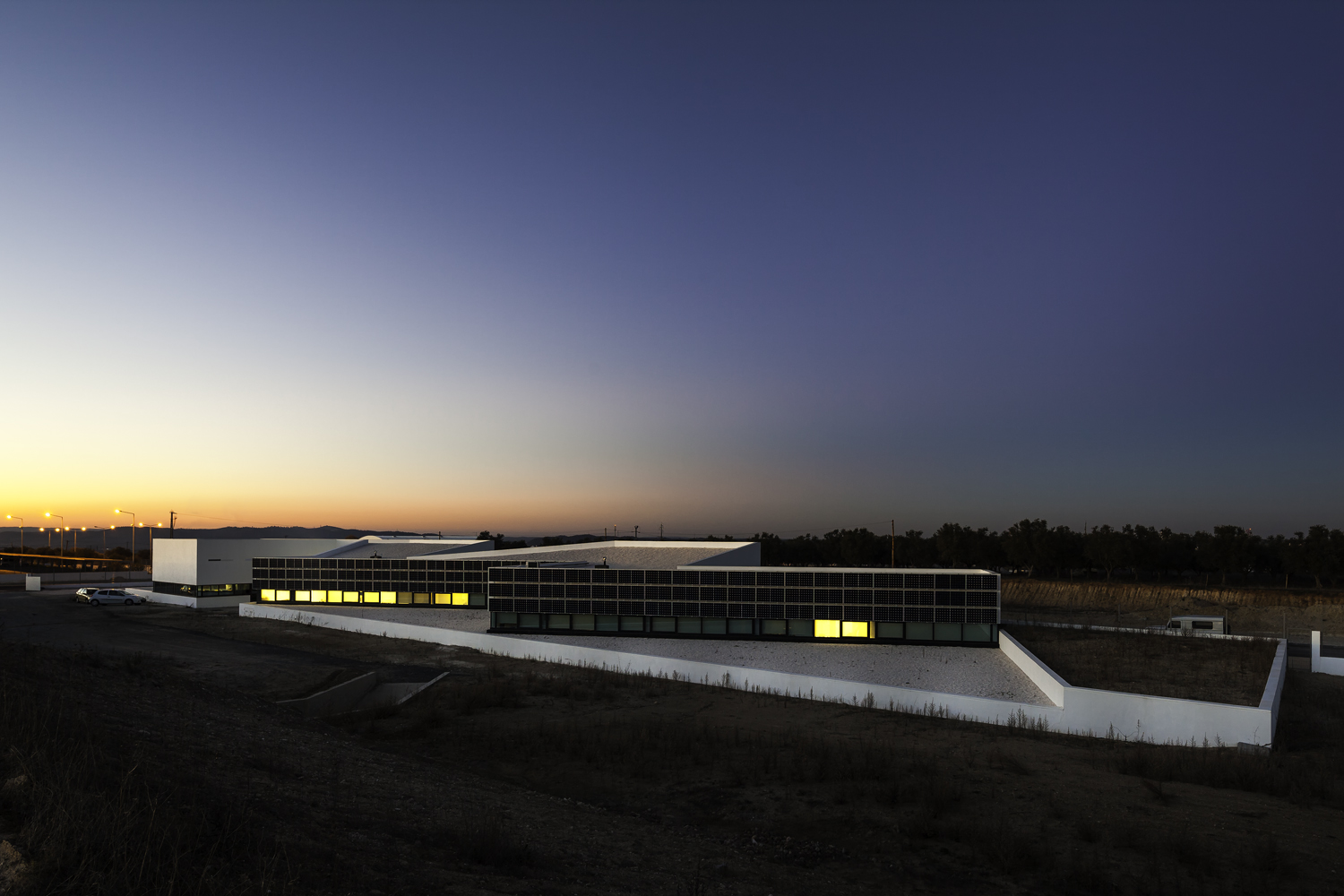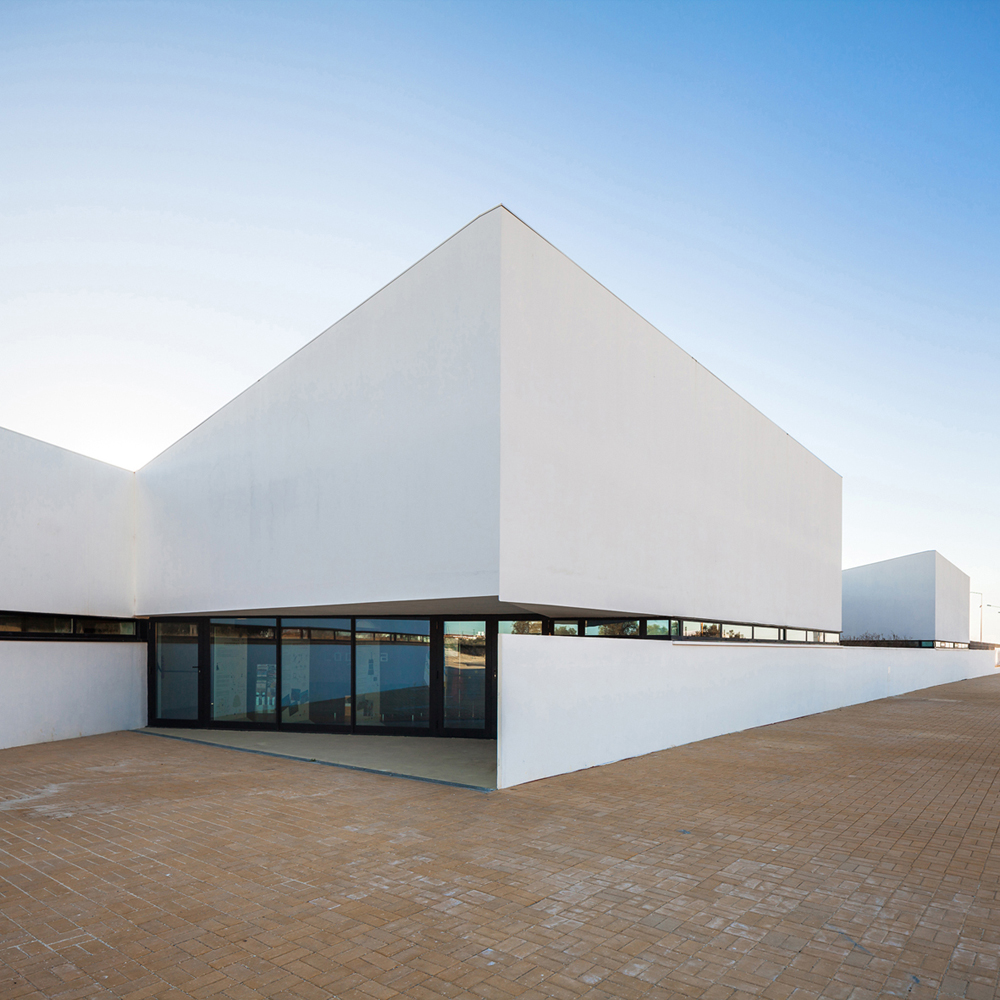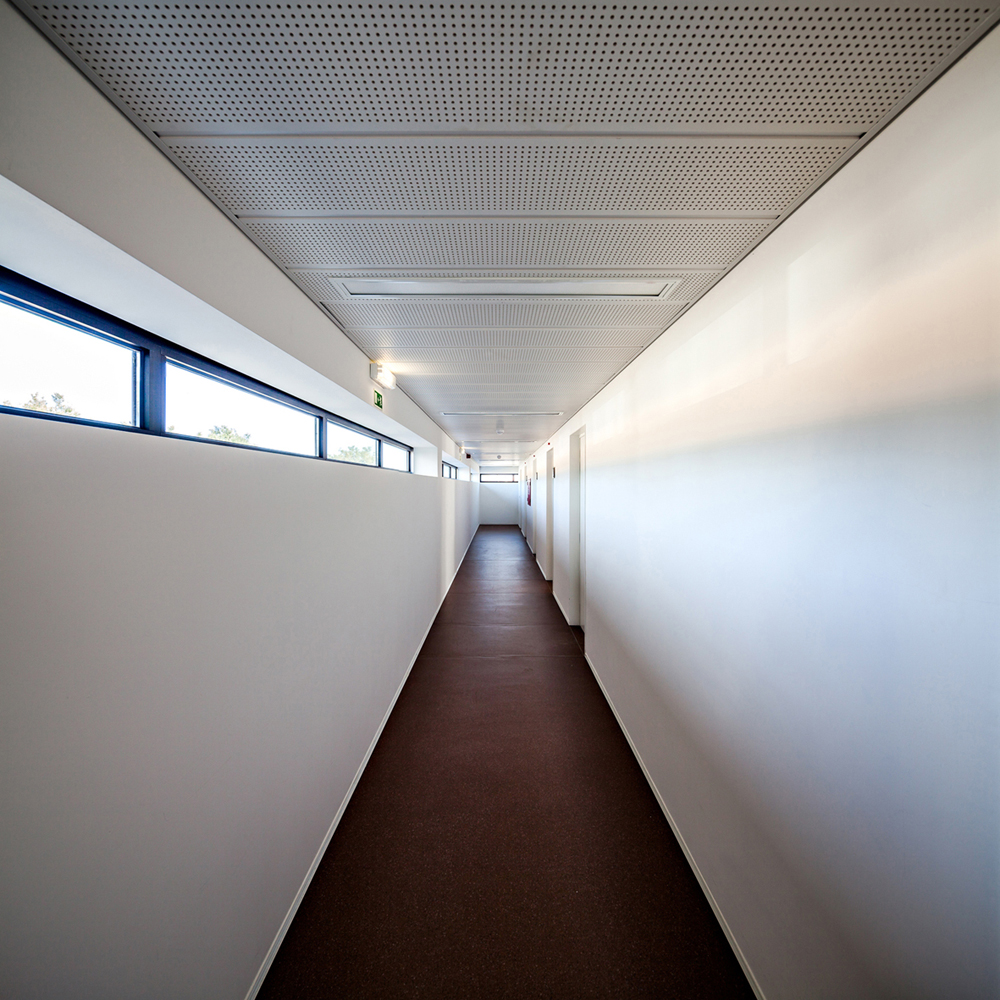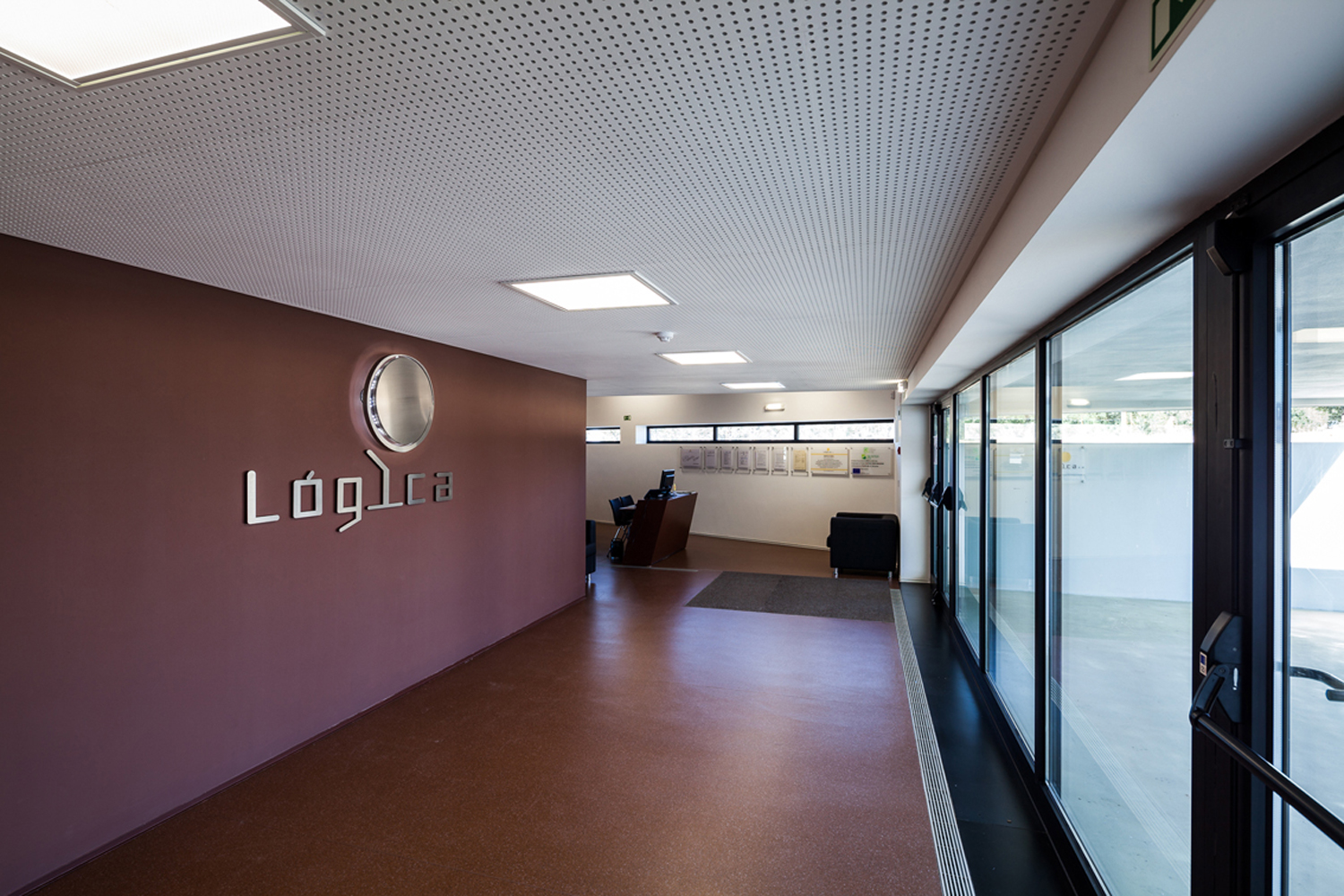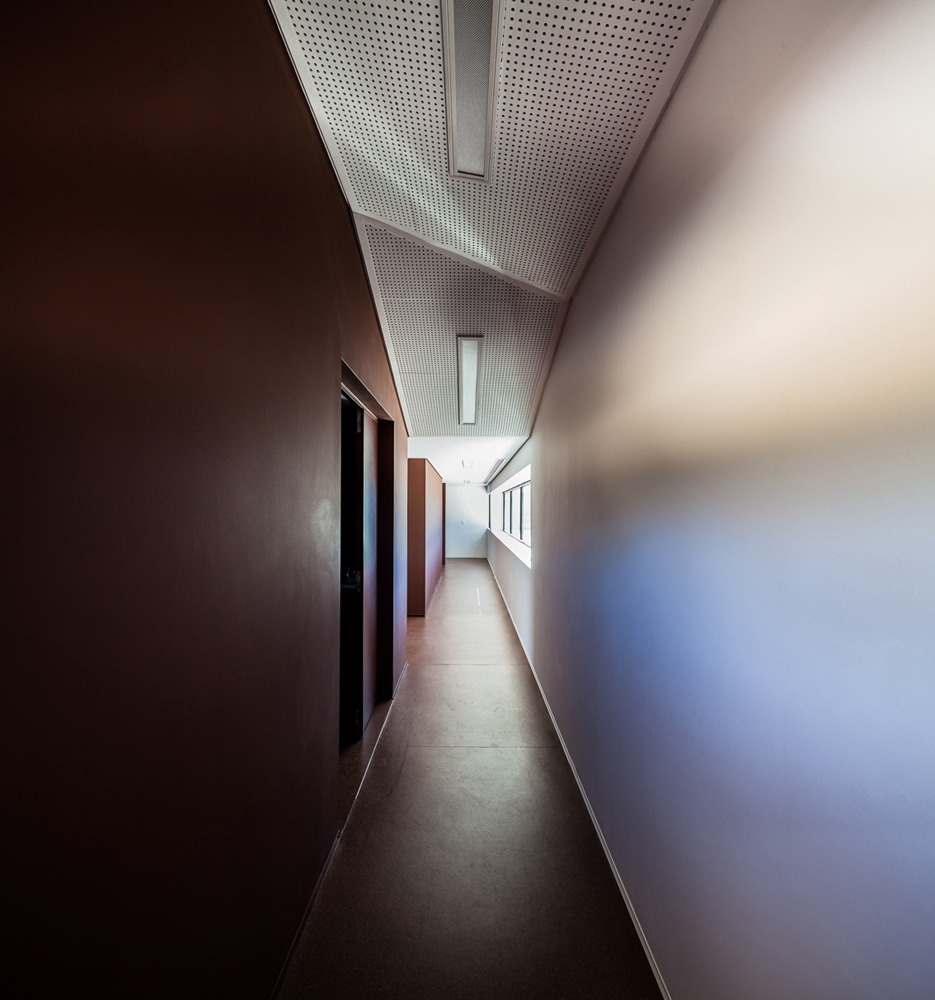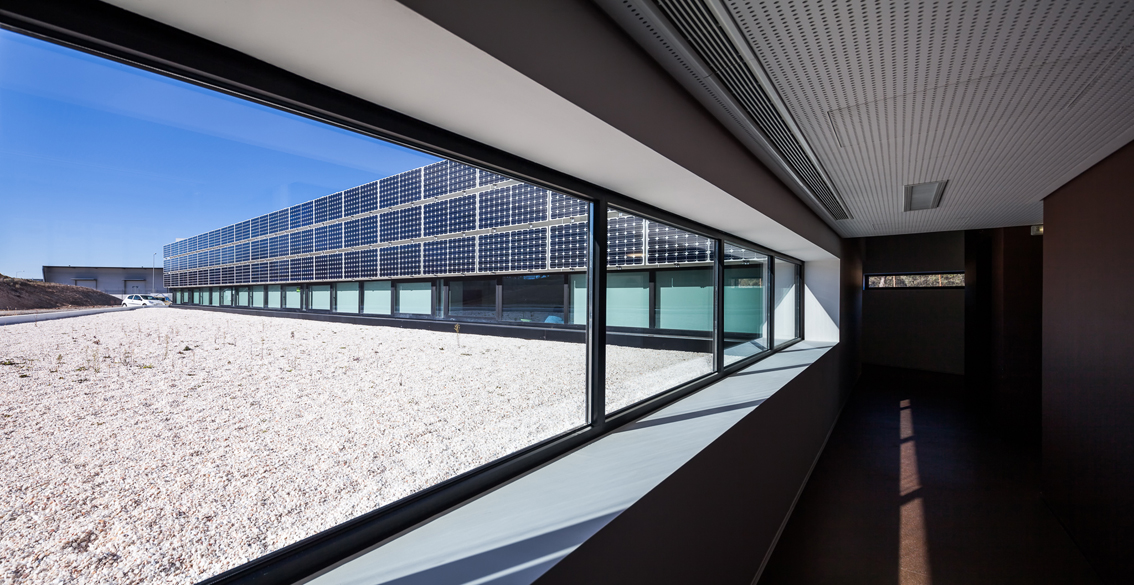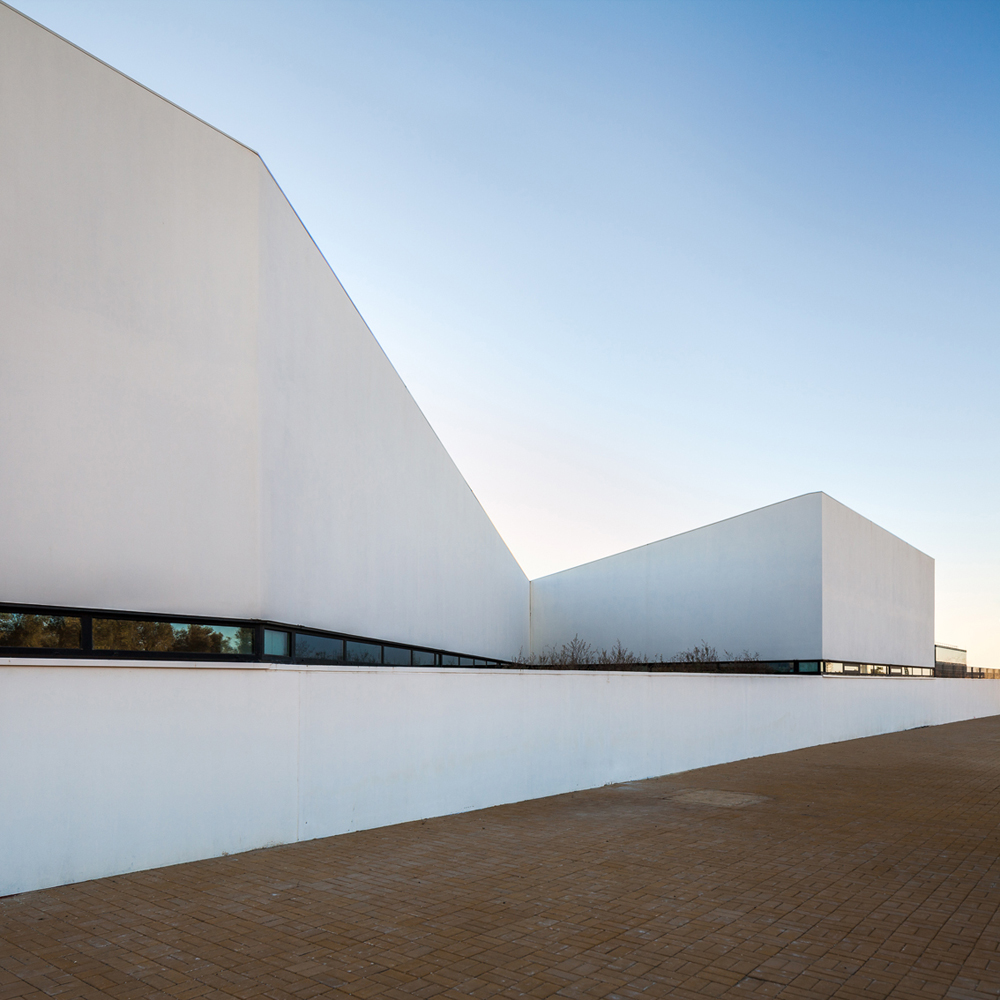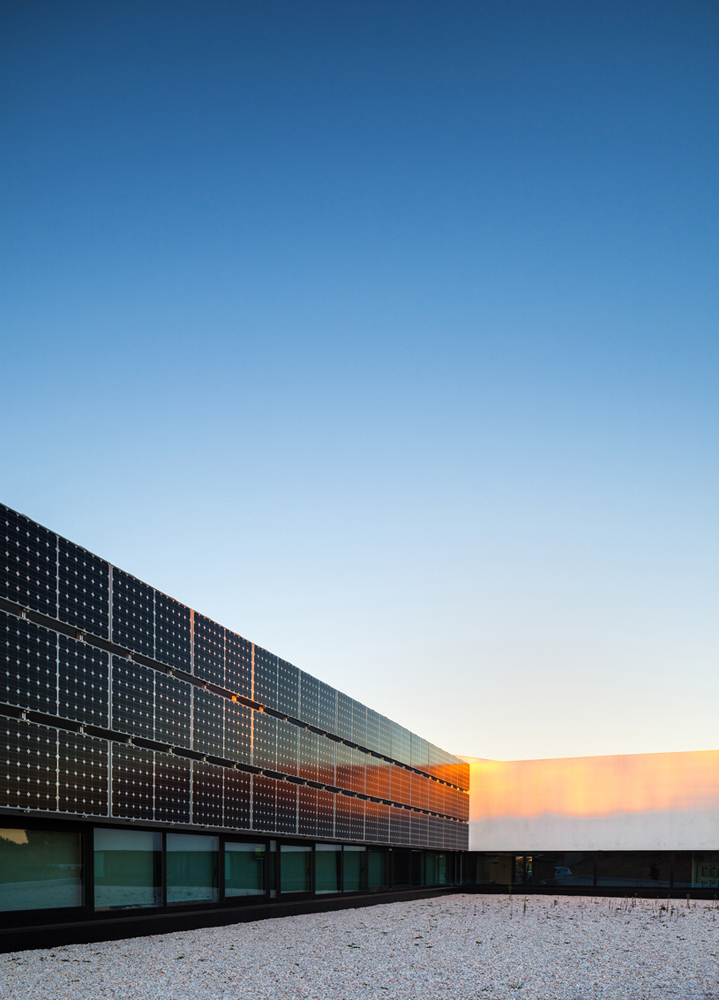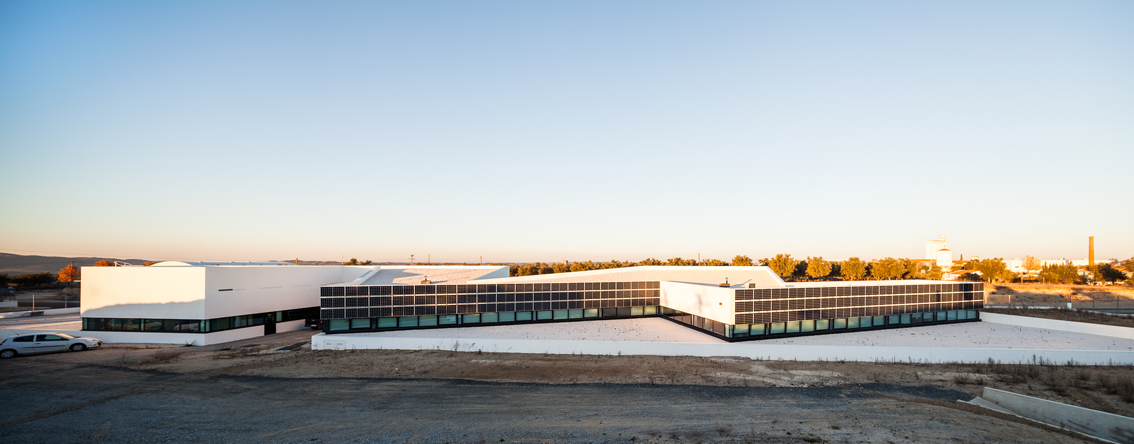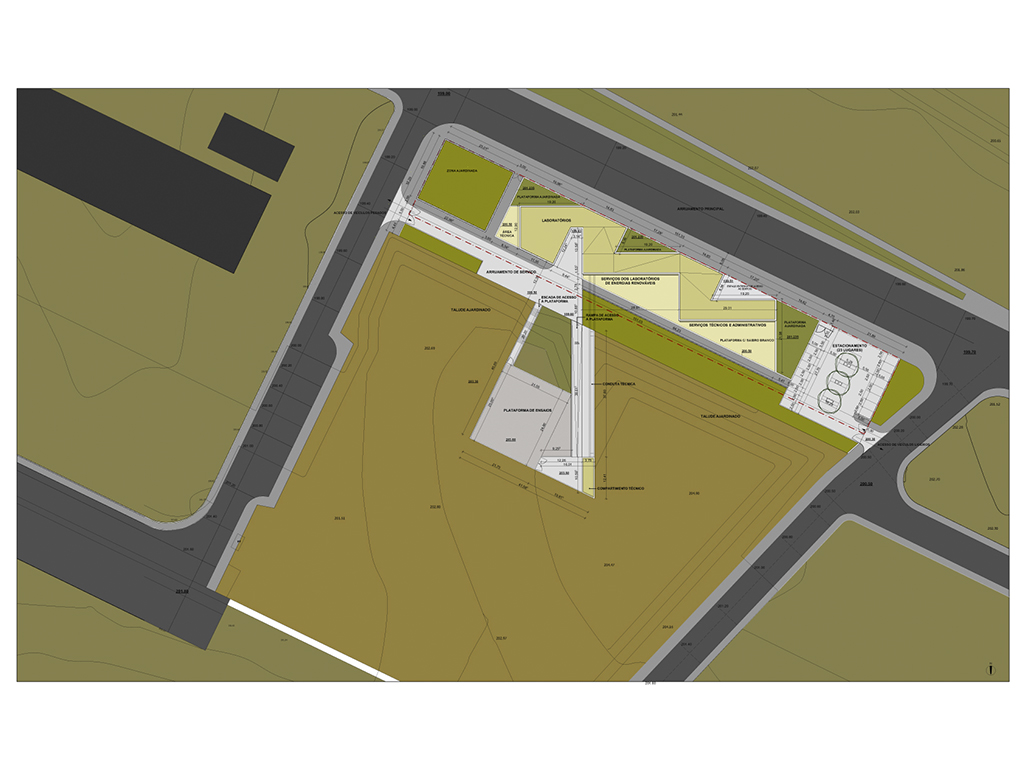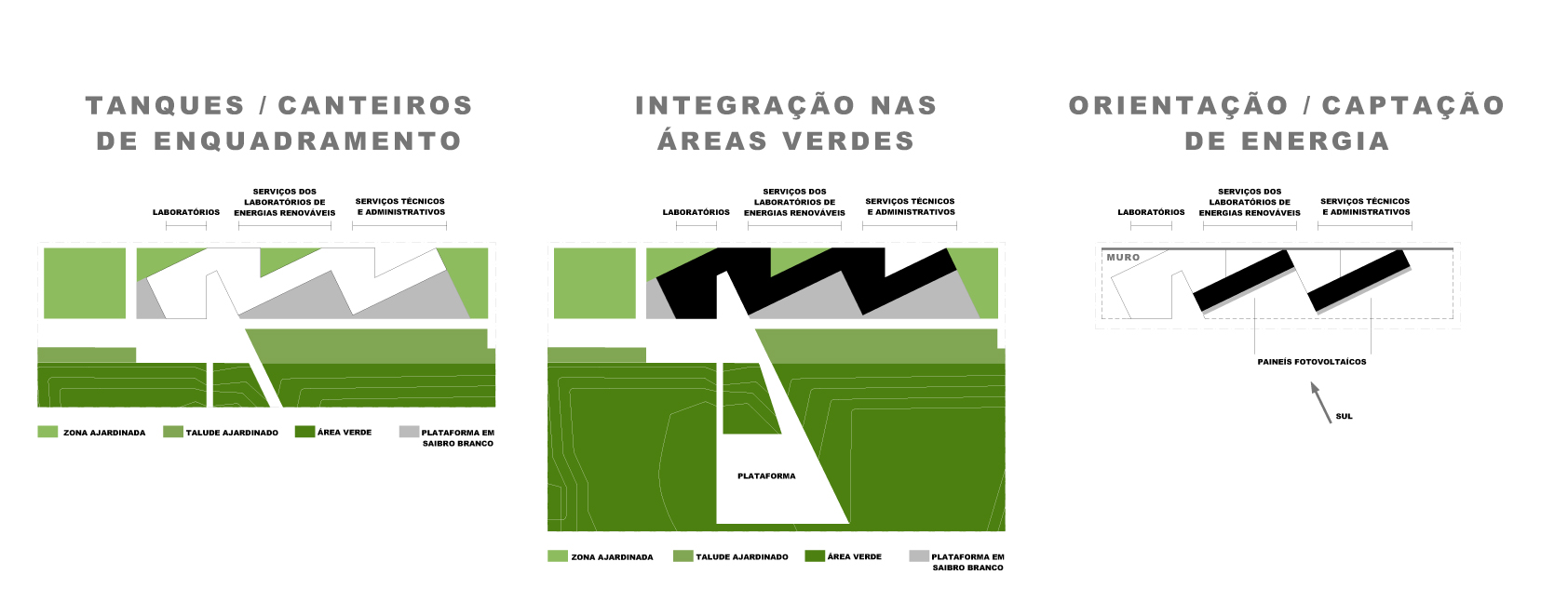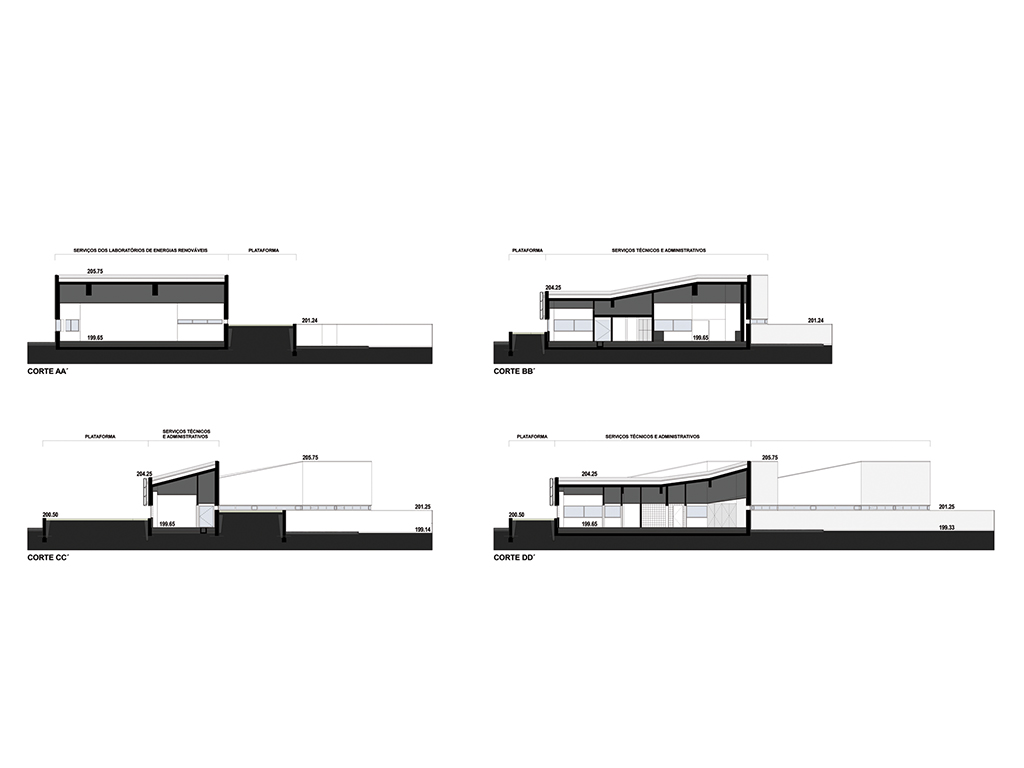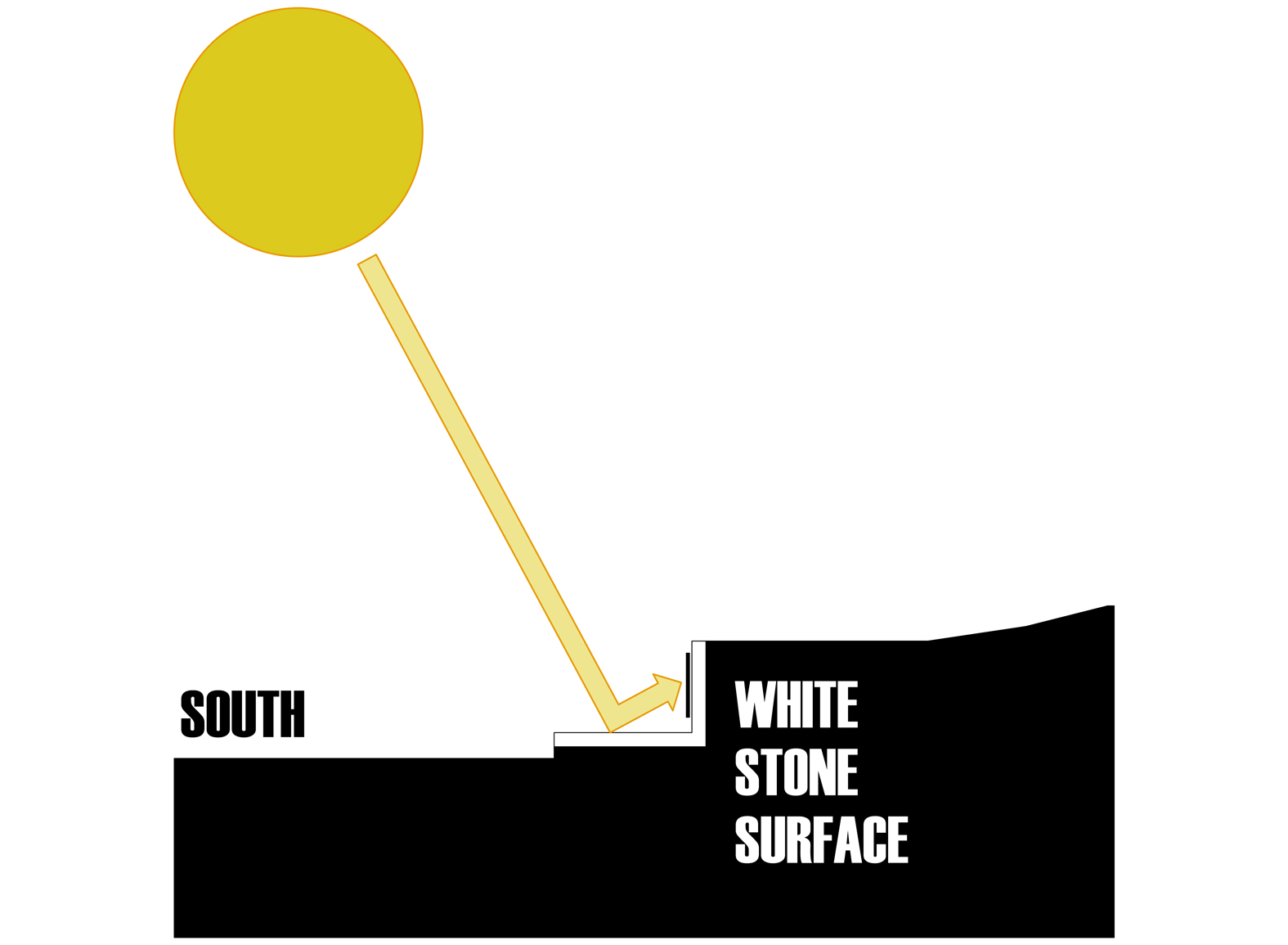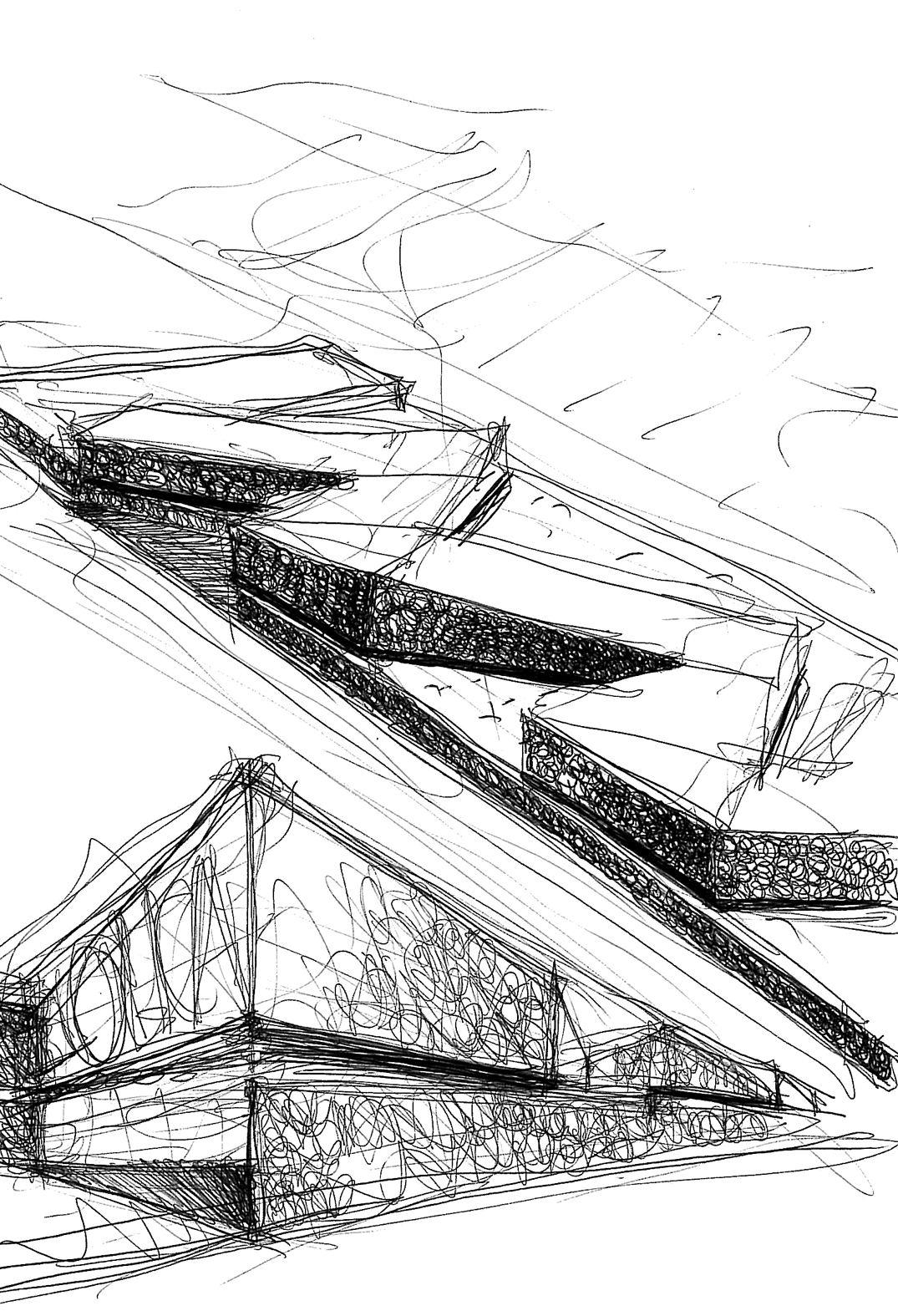12-14,
South
Lógica Headquarters
The Óbidos region is home to extensive swathes of woodland and open countryside dotted here and there with small urban settlements and dispersed building and traversed by transport routes that together lend a meaning and, if one will, an identity to the territory. The largely green region is also renowned for a number of particularly noteworthy buildings and structures, such as monasteries with cloisters, churches, manor houses and small villages and farming structures that are both very clear in their geometric design and integrated into the landscape. It is this identity of a large green space, sometimes containing dense forests, dotted by very distinctive buildings that has given the region its essence and served as the inspiration for the design process. Generally speaking the design creates a square, a ‘plaza’ that is designed so as to suggest that it is the result of a process of natural erosion and demarcates the green structures that surround it.
The design of the ‘plaza’ results from the con guration de ned by the partially sunk façades of the buildings at the ground oor level and by the hill created to the north-west by the earthworks required for the insertion of the buildings. A huge square-shaped structure seems to hover above that space, like a cloister that demarcates it, framing the views of it and from it.
The design of the ‘plaza’ results from the con guration de ned by the partially sunk façades of the buildings at the ground oor level and by the hill created to the north-west by the earthworks required for the insertion of the buildings. A huge square-shaped structure seems to hover above that space, like a cloister that demarcates it, framing the views of it and from it.
